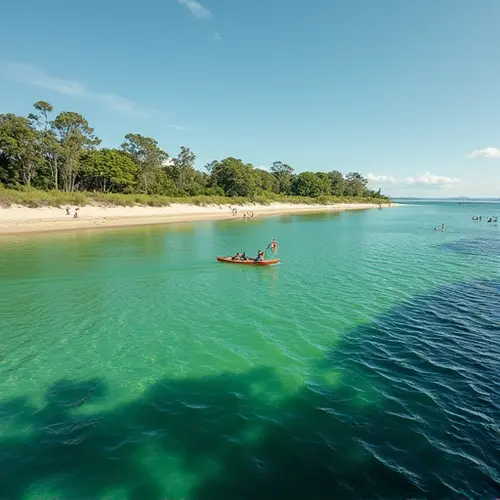Satellite tracking reveals sharks are altering migration routes and timing due to ocean warming, with species moving further north and changing seasonal patterns, impacting marine ecosystems.

Revolutionary Shark Tracking Study Uncovers Climate Change Impacts
Marine biologists are using cutting-edge satellite tagging technology to document how shark migration patterns are being dramatically altered by warming ocean temperatures. The comprehensive study, involving thousands of sharks across multiple species, reveals unprecedented shifts in traditional migration routes and timing.
Advanced Tagging Technology Provides New Insights
Researchers have deployed sophisticated satellite tags that track shark movements in real-time, providing detailed data on depth, temperature preferences, and migration routes. These tags, which can remain active for years, are revealing how sharks are adapting—or struggling to adapt—to rapidly changing ocean conditions.
"We're seeing sharks moving into waters they've never inhabited before," says Dr. Elena Rodriguez, lead marine biologist at the Oceanographic Institute. "Some species are traveling hundreds of miles further north than their traditional ranges as they follow their preferred temperature zones."
Species-Specific Responses to Warming Waters
The research shows different shark species are responding uniquely to climate change. Great white sharks, for instance, are expanding their ranges into previously cooler waters, while hammerhead sharks are altering their seasonal migration timing by several weeks.
Tiger sharks, known for their tropical preferences, are now being recorded in temperate zones where they were previously rare. "We've documented tiger sharks spending entire winters in areas that were once too cold for them," notes Rodriguez. "This has significant implications for local ecosystems."
Ecological Consequences and Food Web Impacts
The shifting migration patterns are causing ripple effects throughout marine ecosystems. As sharks move into new territories, they're encountering prey species unfamiliar with large predators, potentially disrupting established food webs.
Conservationists are particularly concerned about how these changes might affect endangered species and commercial fisheries. "When apex predators change their behavior, it affects everything beneath them in the food chain," explains marine ecologist Dr. Michael Chen.
Conservation Implications and Future Monitoring
The tracking data is helping scientists develop more effective conservation strategies. By understanding how sharks are responding to climate change, researchers can better predict future population distributions and identify critical habitats that may need protection.
The ongoing study represents one of the largest shark tracking initiatives ever conducted, with researchers collaborating across international boundaries to monitor these crucial ocean predators. As ocean temperatures continue to rise, this research will become increasingly vital for marine conservation efforts worldwide.

 Nederlands
Nederlands English
English Français
Français Deutsch
Deutsch Español
Español Português
Português



